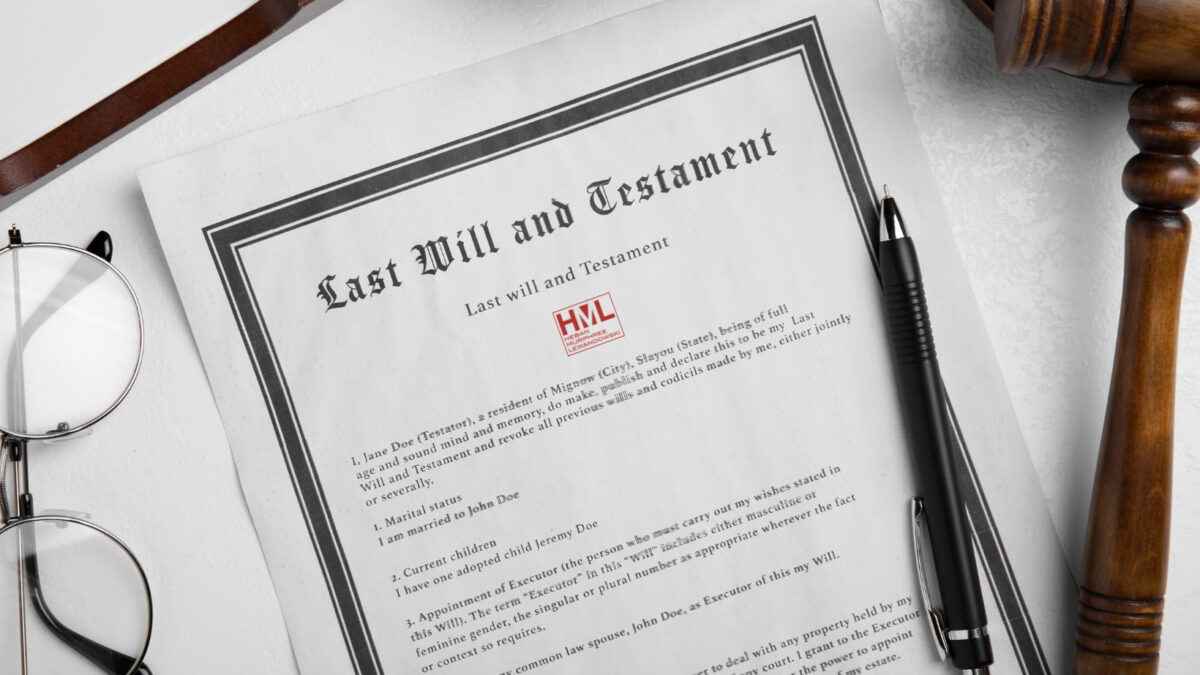- EXPERIENCED LAW FIRM IN TOLEDO, OH
- (419) 662-3100
Can I Contest a Will in Ohio If It Has a No-Contest Clause?

What Happens If a New Will Is Found After Probate in Ohio?
September 5, 2025
Siblings Disagree on Selling an Inherited House?
October 1, 2025What Is a No-Contest Clause?
Challenging a will is never easy and often involves complicated questions. When a will has a no-contest clause, the situation becomes even more uncertain. In Ohio, these clauses have serious consequences, so here’s what you should know before proceeding.
A no-contest clause (sometimes called an in terrorem clause) is language in a will that says if a beneficiary challenges the document, they lose whatever inheritance the will gave them. The goal is to discourage disputes and keep probate simple.
The clause does not preclude you from submitting a challenge; however, it significantly increases the potential consequences. A victory would result in the annulment of the will (and the clause), whereas a defeat could leave you with no outcome.
Unlike some states, Ohio does not recognize exceptions for contests brought in good faith. Courts have enforced no-contest clauses for more than a century and continue to do so today.
That means if you contest and fail, you can be completely disinherited regardless of your motives.
Who Can Contest a Will?
Only individuals with a direct financial interest have standing in the Ohio probate court. This typically includes beneficiaries named in the will or heirs who would inherit if there were no will.
If you were left nothing, the clause doesn’t apply to you, since you have no inheritance to lose. Ironically, those fully disinherited often have less to risk and more to gain by bringing a contest.
Why Contest Anyway?
Despite the risks, people still move forward. Sometimes it’s because they have little to lose, like when the will leaves them only a small token gift. Other times, they believe they have solid evidence of wrongdoing, such as undue influence, fraud, or lack of capacity. If the court finds the will invalid, the no-contest clause goes away along with it.
In rare cases, a clause may be so poorly drafted that a court refuses to enforce it. That’s unusual, but it underscores why an attorney should always review the exact language.
The Risks to Consider
The biggest risk is obvious… losing your inheritance. But contests also carry steep legal costs, can drag on for years, and often create permanent rifts in families.
A will contest incorporating a no-contest clause fundamentally constitutes a high-stakes, all-or-nothing endeavor.
Steps Before Acting
Before considering a challenge, you should consult with an experienced Ohio probate attorney. They can assess whether you have grounds to contest, if your case is strong, and if the potential benefits outweigh the risks. Time is also a factor, as Ohio law requires you to file a contest within three months of receiving notice of probate. If you wait too long, you’ll lose your chance entirely.
Mediation or settlement negotiations may sometimes achieve a fair outcome without triggering the harsh effects of a no-contest clause. Exploring these options with counsel can save time, money, and stress.
Common Questions About No-Contest Clauses in Ohio
Can I still contest a will if it has a no-contest clause?
Yes. A no-contest clause does not prevent you from filing a will contest. It simply means you risk losing your inheritance if the challenge fails.
Does Ohio recognize a good-faith exception?
No. Unlike some states, Ohio does not excuse a challenge brought in good faith or with probable cause. If you contest and lose, the no-contest clause will likely disinherit you.
Who has the right to contest a will in Ohio?
Only those with a financial interest, such as beneficiaries named in the will or heirs who would inherit under Ohio intestacy law, have standing to file a contest.
How much time do I have to file a will contest?
In Ohio, you generally have just three months from the date you receive notice of probate to contest the will. Missing this deadline usually ends your right to challenge.
So… Final Answer?
Yes, you can contest a will in Ohio even if it contains a no-contest clause. But the more pressing question is whether you should. Ohio courts enforce these provisions strictly, so the risks are serious.
At Heban, Murphree & Lewandowski, LLC, we have assisted numerous families in resolving will contests and inheritance disputes. If you are considering this challenging decision, please contact us for a consultation. We will evaluate your circumstances, outline your options, and support you in making an informed and confident decision.








